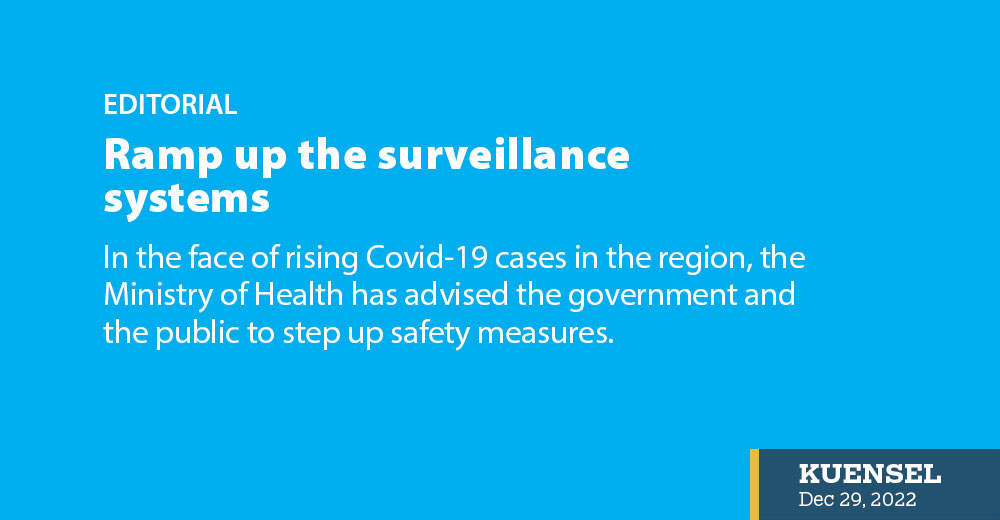In the face of rising Covid-19 cases in the region, the Ministry of Health has advised the government and the public to step up safety measures.
This is an important warning. We have gone through some difficult times. Lockdown is never a convenient measure, as we have experienced.
According to World Health Organisation (WHO), the latest variant, BF.7, a sub-variant of Omicron, is the fastest spreading variant to date. BF.7 has been detected in Indian states, especially in Gujarat and Odisha. The risk of the virus entering Bhutan, therefore, is very high.
Ministry of Health in its notification said that ministry is “continuously monitoring the trends of Covid-19 at all the major points of entry.” This is good news.
We know that the entry of Covid-19 will happen only from the points of entry. There are six entry points in the country: Paro International Airport, Phuentsholing, Gelephu, Samdrupjongkhar, Samtse, and Nganglam in Pemagatshel. Therefore, bolstering measures at the points of entry is critically important.
But the focus should not be only on the points of entry. Safety protocols should be strengthened inside, in towns and villages. Routine Covid-19 integrated influenza surveillance systems are in place to monitor the virus in all these entry points, we are told. Health workers have been alerted and the ministry has enhanced random testing of travellers and foreign workers at the entry points.
Wearing face masks and washing hands should be made mandatory, especially in major population centres.
Covid-19 continues to be a serious threat. As cases continue to rise in the neighbouring countries, there is a need to bolster our surveillance and quick-action systems.
India is tackling with BF.7, a strain that has China in a very complicated situation today. The variant has already been detected in the US, the UK, and European countries such as Belgium, Germany, France and Denmark, among others.
India is ramping up genome sequencing as a proactive measure to study the emergence of new variants of the virus. The real danger facing us today is that we seem to assume that Covid-19 is no longer a threat. Covid-19 is still a significant threat and we cannot take it lightly.
Information, education, and communication are still very important. What the health sector has done so far deserves our praise but we can together do a lot more. We must prevent the spread of the virus as much as possible. We must, at all costs, avert the kind of destruction that the virus has done to the economy and lives of the people.


